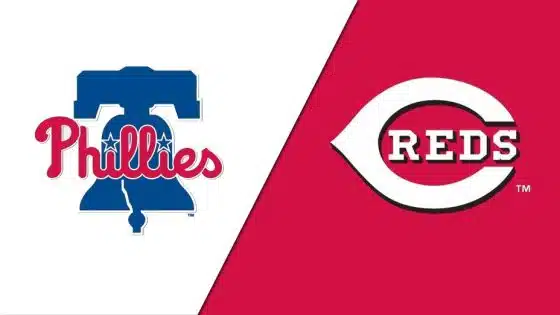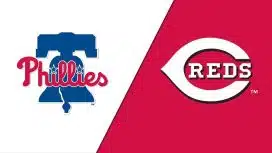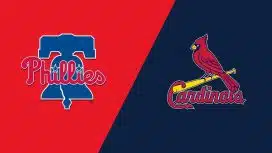In 2003, the final year of Veterans Stadium, my third base field level tickets cost 26 bucks apiece. By that point it had become fashionable to call the Vet a dump because, well, it was. The place was falling apart, it smelled, it was hit-or-miss whether the bathrooms worked (and when they did they stunk of urine because plenty of times it was the fans who missed), the parking lot was dangerous. Everybody seemed to agree that it was time for it to go.
In 2004 the Phillies moved into beautiful, state-of-the-art Citizens Bank Park. My Vet seats were swapped for comparable seats in the new digs and they were very nice. At $40 a pop. Today those seats will run you $70. In a moment of timing so perfect that were it to have occurred in the stock market I’d be a millionaire right now, just weeks prior to the pandemic I informed the Phillies that I was done — $70 was finally the bridge too far for me. So those are no longer my seats.
With baseball starting back up I feel I am a fan adrift. And so it hit me: I miss the Vet. And not because I miss the smell of urine. I miss it because the fight for the hearts and minds of Phillies fans to support its replacement marked the beginning of the end of accessible baseball for so many of us. When the Vet imploded the Phillies won and Phillies fans lost.
We lost because the battle over a new stadium wasn’t really a battle over location and construction costs, but a battle over whether the Phillies would be able to delude their fans into fighting their fight for them – to so thoroughly overwhelm the club’s most ardent and diehard supporters with a stink bomb of a stadium in the old Vet that they’d beg the city and the club to build a palace at any cost. A cash machine disguised as a palace, really, that Hoovered every penny out of their pockets from the parking lot to the final pitch.
You see, the Vet was only a dump because the Phillies purposely made it so. Over the course of its final several seasons, as the club was simultaneously lobbying for new digs, it picked a series of fights with the city over who was responsible for this or that, and refused to perform all but the most bare bones maintenance on the place because, ultimately, it benefited the club if the Vet went to hell. And so it did. The Phils could have stepped up to make the necessary improvements, to fix this or that, to work more amicably with a city government that seemed perpetually on the brink of bankruptcy. But they didn’t because they knew that if they could only get the fans to fight their battle for them they wouldn’t have to.
In the process the fans lost as the Vet deteriorated and became not only unsanitary but downright dangerous. Not to worry, the Phillies said, we’re working on getting – for you! — spectacular new digs, where the concessions will be amazing, everything will be clean, and everyone will feel safe. The thing is, though, the club didn’t have to put its fans at risk at the Vet. Through malicious neglect, animus towards the city, and with an eye toward lining its pockets in the process it chose to do so, though. And that should tell you something.
It should tell you that the Phillies, like all professional sports teams, don’t give a crap about you. They do give a crap about your wallet, however, as a tour through any of the wave of stadia built since the early’90s stadium boom demonstrates. And they’ve managed to convince enough of their fans that whatever the Phillies want is what they should want as well. This is how they won and we lost.
Somehow those within baseball (management AND players) have managed to co-opt the rest of us to do both their bidding and their dirty work for them. The same way the movie industry convinced moviegoers that the weekly grosses were in any way relevant to their enjoyment of a film, baseball has made what’s important to its bottom line seem important to baseball fans. And so just as we now care about who was number one at the box office each week (remember box offices?) we seem to think it’s important that the Yankees, Red Sox, and even the lowly Marlins wind up each season not only in the black but comfortably so.
Baseball talks a lot – even now, in the middle of a pandemic where most people are struggling simply to keep their heads above water — about “growing the game” and this talking point is repeated mindlessly by those who cover the sport as if it were an inalienable right. But how does “growing the game” benefit fans? Growing the game means increasing the money coming into baseball, adding revenue streams, wringing every last dollar out of your pocket for what is essentially the same experience you had a generation earlier at a fraction of the cost. None of this inures to the benefit of the dwindling multitudes who, before the pandemic, bought tickets or tuned in to watch the games.
And the multitudes were dwindling precisely because baseball’s mindset – as neatly and effectively packaged and presented to you via your favorite columnist or media outlet – is killing the game by shaking down everyone who loves it.
What if baseball didn’t grow? What would happen then? What if, instead, it shrank? Somebody once said that one should never let a crisis go to waste and right now there exists an opportunity to seize the current one and push for a scaling down of the big business that is Major League Baseball. After all, forgetting the owners and players for a moment, this would clearly benefit the fans. A scaling back might lead to a decline in revenue and, accordingly, salaries. In the process, and given the trending decrease in demand, ticket prices might even decrease, or at least hold relatively steady. We might see clubs working a bit harder to maintain their now aging stadiums (Camden Yards is now only five years younger than the Vet was when it was imploded) rather than actively work to destroy them in the hopes of getting a gleaming replacement that will only bleed fans dry more efficiently.
It sounds blasphemous to even suggest – shrinking the pie rather than growing it. But that’s only because we’ve become inured to follow the whims and wants of big business. There’s no gravitational or natural law that says we have to. There’s not even any written law. We, as a culture, simply decided to, when we weren’t paying attention, when we were distracted by shiny new things such as faux brick baseball malls. Perhaps now we should start paying attention.
Was the Vet a jewel of a ballpark? Hardly. But neither was Brooklyn’s fabled Ebbets Field. Dodger fans didn’t love Ebbets Field because of the amenities (there were none); they loved it because that’s where their Dodgers played. Period. For fans, that’s really all that matters. But baseball and its attendant scribes enjoy going to great lengths to convince you that that’s not the case.
As fans and readers of our favorite sportswriters and talking heads (not all, of course, but far too many) it’s pounded into us that we have strict sight-line requirements, insist upon numerous food and beverage options, and relish “premium opportunities” (whatever the hell those are). But while some of that might be nice, we really don’t need any of it. Particularly when the associated costs render the game less affordable overall. After all, you didn’t have any of that before CBP and if you were old enough to remember the Vet as it existed before the mid-90s you loved it anyway, even if you may never have thought about your affinity for the concrete bagel in precisely that way.
CBP is nice, for sure, but every inch of the place is designed to sell you something you don’t need or, really, even want. Astroturf may have sucked but the Vet’s outfield walls were gloriously free of signage, as was most of the stadium. On balance, even with the Astroturf, attending a ballgame at the Vet was a purer baseball experience than anything at CBP could ever hope to be.
Baseball is fun when it’s accessible and affordable. When it ceases to be those two things it becomes little more than a revenue stream unto itself. And that’s not fun for anybody without a financial stake in it. The Vet was this city’s last vestige of accessible, affordable Major League Baseball.
I miss the hell out of it.
Mitch Nathanson's biography of Jim Bouton is out now.





